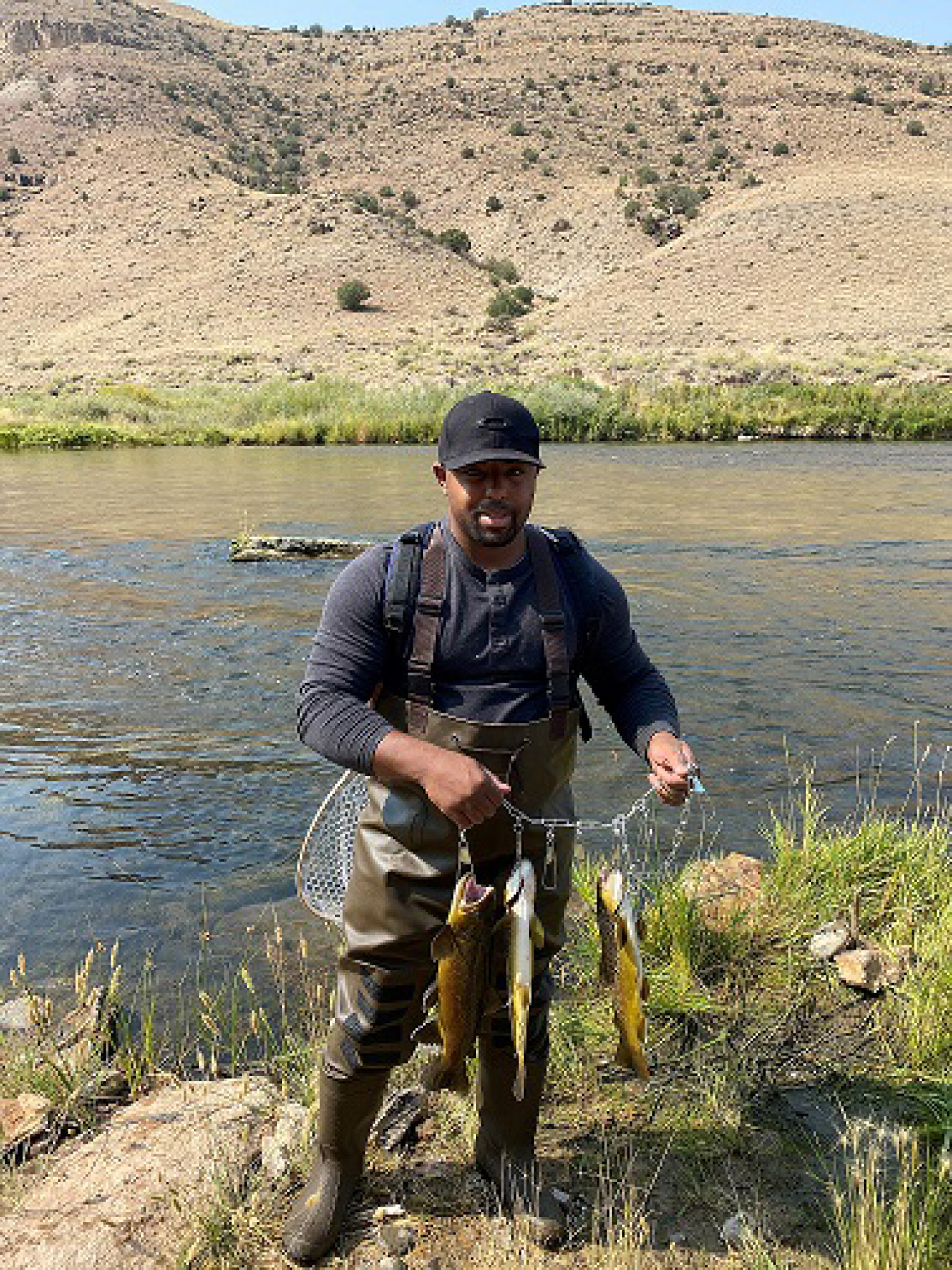An insider reveals how IT supports seamless work across LM’s field sites.
September 20, 2021
As the long-term environmental steward of post-closure nuclear sites dating back to the Cold War, the Department of Energy’s Office of Legacy Management (LM) has an enormous responsibility. Its mission requires different teams and projects throughout the country to operate simultaneously, and the hard work that goes into keeping them running cannot be overstated.
“I like to think of our department as the invisible backbone of the organization,” said LM Federal IT Specialist Kyle Brown.
“If you’re not thinking about IT, that’s a sign that we are doing our job well,” he said. “We keep the train on the tracks, making sure servers are running and information is kept secure and usable.”
With more than a decade of experience, Brown provides oversight on IT governance and projects at LM and is always on the hunt for ways to improve processes. Additionally, he heads the end-user services group, providing support for employees out in the field and remotely solving any issues they have with equipment.
Brown quickly learned the vital nature of IT work when he began his career in the U.S. Army. Initially tasked with setting up site radios and other means of communications, his responsibilities grew to include managing IT security that was mission-critical for the Army.
“If you don’t have a strong IT team, people won’t be able to do their work in the field,” Brown said. “That’s not an option at LM, where our work protects human health and the environment not only today, but for years to come.”
Progress at LM depends on capturing geographic data, storing it safely on servers, and passing it across generations of employees.
“IT plays a crucial role in each step, and there’s value in increasing understanding of that role across LM,” Brown said.
LM employees collect and access massive amounts of geographic data every day thanks to the software and hardware that IT manages. No matter where in the country a technical issue arises, IT is able to identify the root cause and chart a course of action, Brown said.
The department serves a vital security function, helping to protect LM’s wealth of institutional knowledge. LM must keep its masses of data secure, while simultaneously ensuring it is easily accessible to employees when they need it. Brown said security is a rapidly evolving aspect of IT, particularly as cyberattacks grow more frequent.
“Hackers get into systems every day, and phishing tactics are only getting more advanced,” Brown said. “Our team has to stay three steps ahead in cybersecurity, and we aim to raise awareness among employees of these types of attacks.”
Brown realizes his niche can be cryptic for those who aren’t immersed in the IT world, but he says it’s his own learning curve that’s surfaced.
“I’m so grateful to have had the opportunity to visit LM sites like Grand Junction, Mexican Hat, and Monticello,” he said. “Going to field sites has been the most educational aspect of my career, providing me context for the tools employees use in the field and how important they are.”
That experience has ignited a personal interest in environmental protection for Brown, and he thinks constantly about how IT can be involved in a direct way. The team uses Electronic Product Environmental Assessment Tool (EPEAT) and Energy Star certified equipment, and LM recently earned its sixth EPEAT award, signifying a continued effort to improve the organization’s sustainability.
“We always look for ways we can minimize our environmental impacts,” Brown said. “Even small changes and upgrades can maximize efficiency and reinforce LM’s position as a long-term steward of the environment.”
Brown’s constant enthusiasm amplifies his impact in the organization, said Archives and Information Management Team Lead Edwin T. "Doc" Parks. “His professionalism, passion for customer service and infectious, positive attitude are mission multipliers that motivate and inspire everyone around him,” Parks said.
Though the responsibilities of the IT department look very different from those of employees out on field sites, they are inextricably connected in supporting LM’s mission. IT works tirelessly to hold LM up on the back end, and though team members like Brown might joke that their work is “invisible,” it is very impactful.

